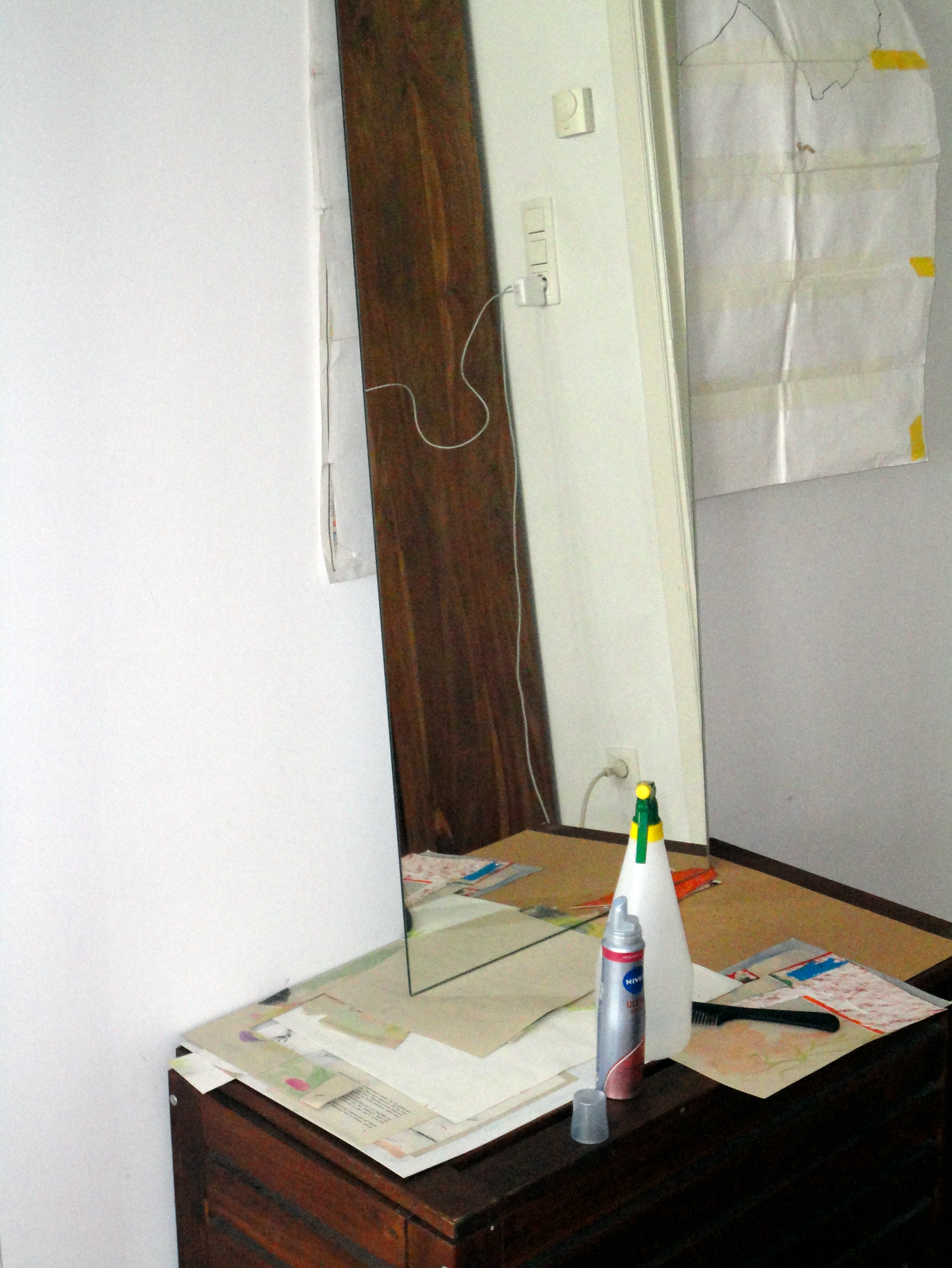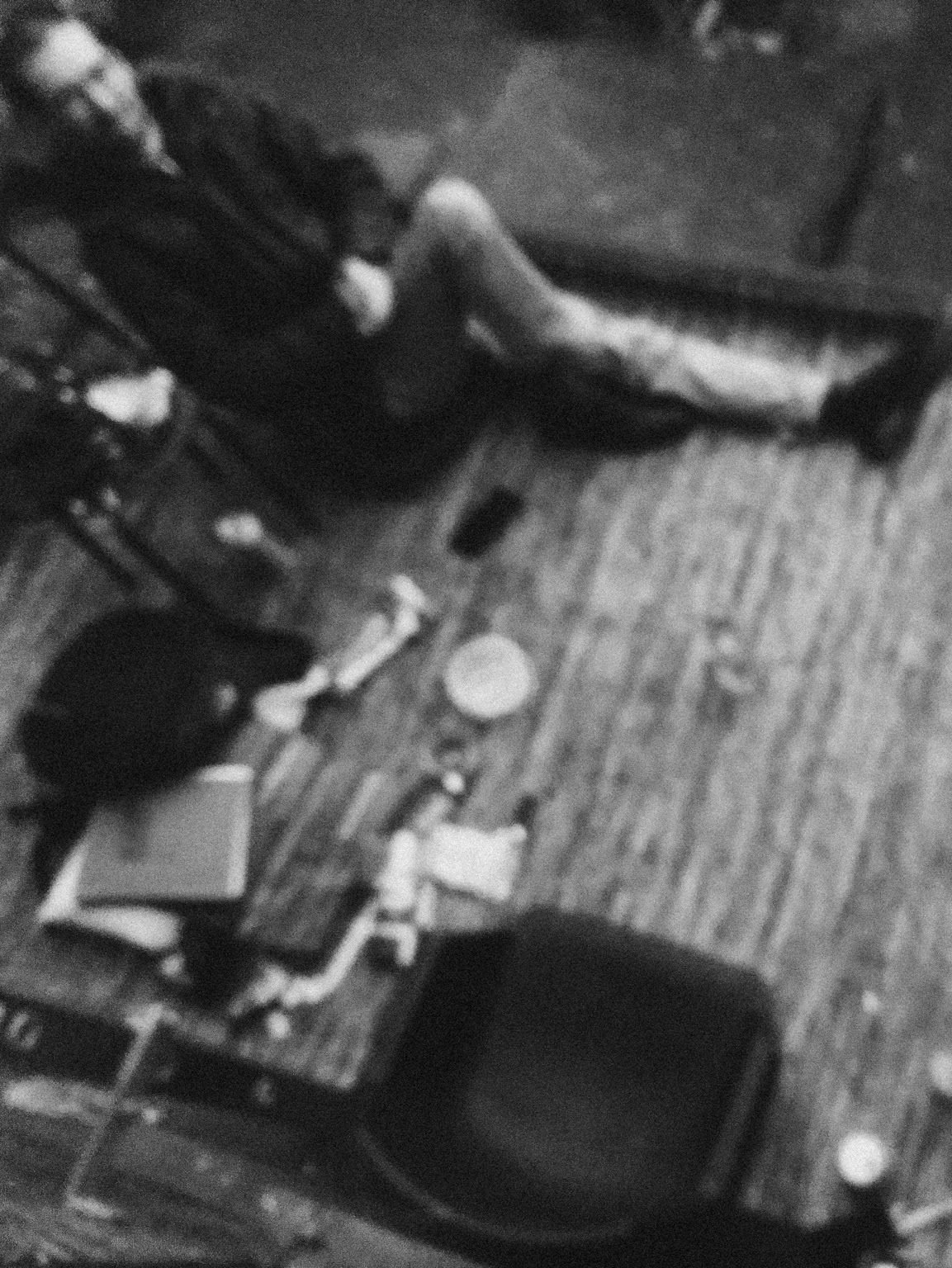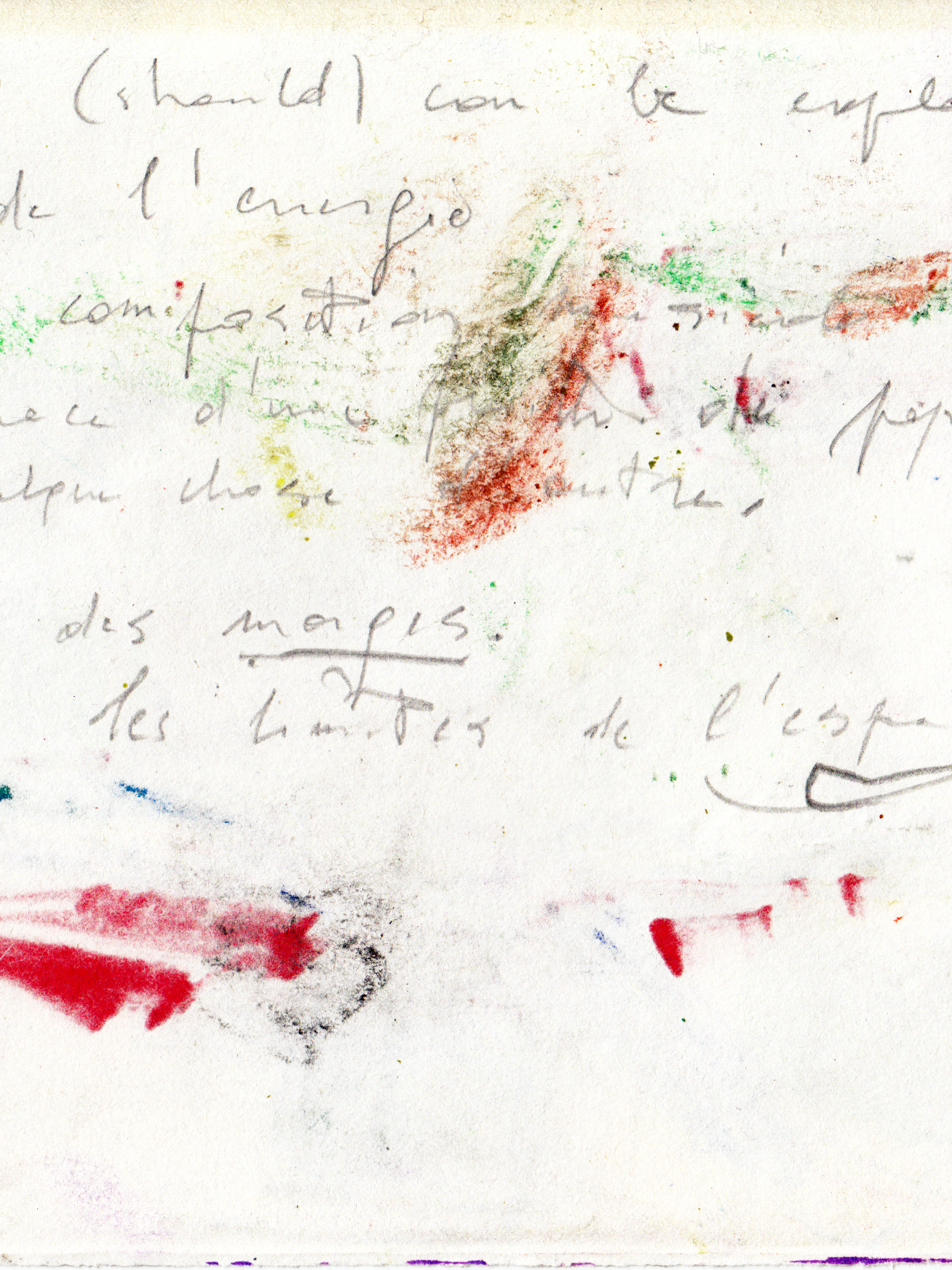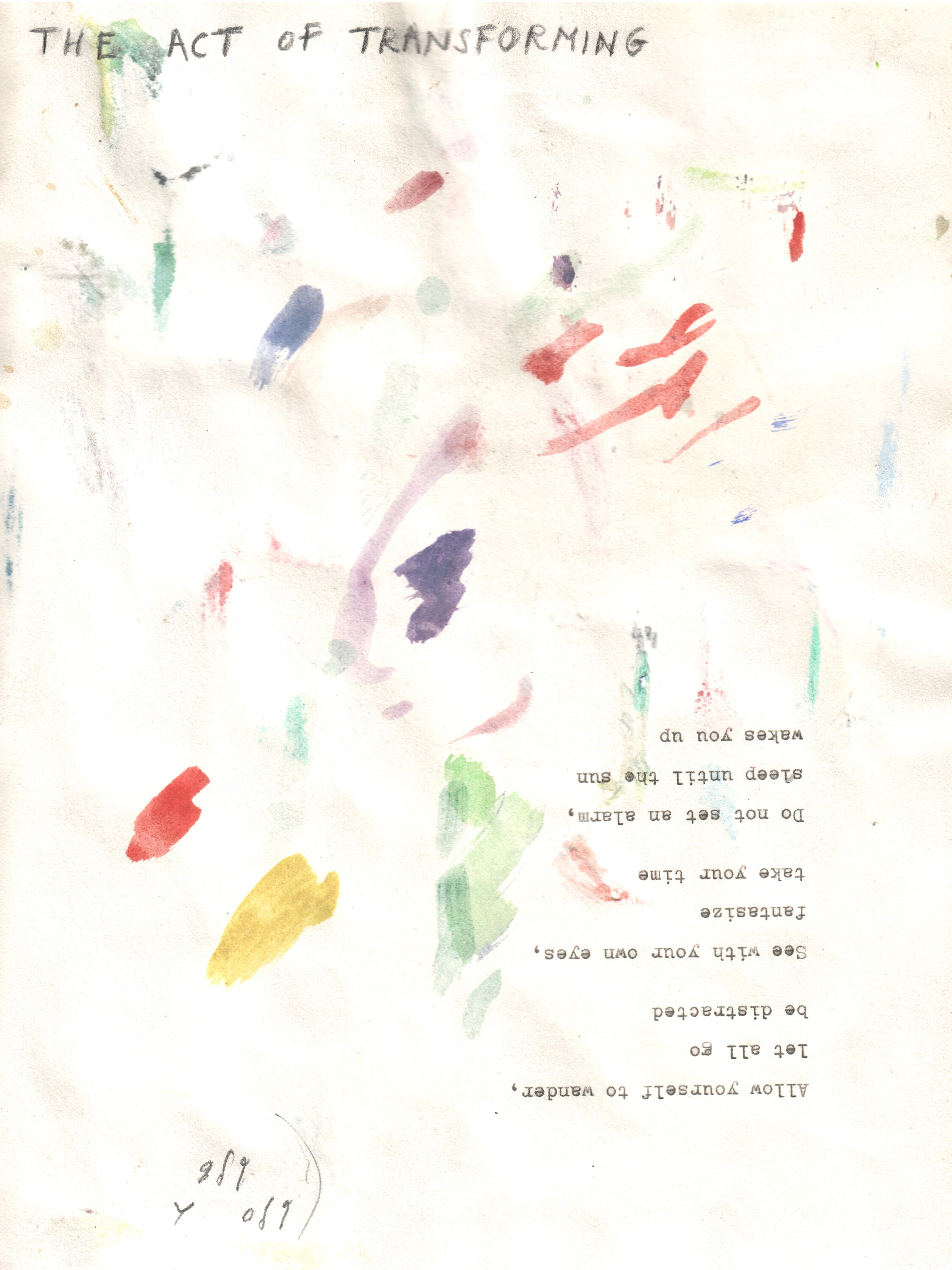1. Resume of Jacques Derrida's "Generations of a city"
The essay starts by citing Kafka, a novelist born in Prague, a major city in the former Austro-Hungarian empire. Kafka's work, often surreal and alienating (from his work the term ‘Kafkaesque’ is derived) is centered around the relation between the individual and the growingly impersonal society. In his essay, entitled ‘Investigations of a Dog’, he talks about the great amount of work that is going on in Prague at that moment. Yet ‘not for the sake of expansion’, he states. ‘The activity rather aims at securing what already exists’. He sees some sort of anxiety for building in the city, a fear of destroying the work of generations before. Instead people tend to use ‘the same rules of construction that have applied from antiquity onwards as a result of our national character’.
The theme of ‘a city under construction’ is central throughout the whole essay. The urbanistic project is one that engages generations and will continue to do so. Derrida tries to draw some lessons from this. First: To add something to the city should be done in a respectful and responsible way. It should try not to stand out or be different but inscribe itself into the tissue that is already there. In this manner new projects are tied to a certain grammar, but new syntaxes based on this grammar are certainly possible, even encouraged as long as they are ‘not contradictory with the first ensembles’. Secondly, Derrida wants to point out the difference between incompleteness and non-achievement. Instead of what we might think at first glance, he doesn’t see incompleteness as something negative. Keeping a sense of incompleteness in the city by not saturating all spaces leaves urban possibilities, openness for the city to expand and redefine itself. In a way, not trying to fixate the city totally keeps it alive. This fact of non-achievement ‘is a strange communitarian contract that has bound and will bind generations of builders’.
Further in the essay, Derrida warns the reader for the catastrophic consequences of seeing the city as an exhaustive totalitarian project that needs to be solved (something that was a common thought among functionalist thinkers like for example Le Corbusier). He explains it by using the Babelian figure of the tower. The biblical project of the construction of the tower of Babel is an example of a big totalitarian vision, a big idea that makes everything else secondary. But - he argues - even in this project, where everything was so clear and the purpose so straightforward, doubt began to rise among the people involved. They began to question their knowledge. Do we know everything? Will future generations with more knowledge not decide to tear everything down? Even about this big, complete idea, they started to argue. Eventually the builders decided to stop the building of the heaven-reaching tower altogether.
The city will always be something beyond reach. We cannot grasp it in its complete essence. No person or group of people can claim the right to decide for future generations how the city should evolve. Thus we should respect its past body, yet at the same time take the responsibility to change and take risks if only to give the city enough life and openness not to become a museum.
2. A parallel to people’s lives (still to check!!)
<<I am the threshold of something else again: I have never been, and a city will never have been, simply that.>>
The punch line of the text lies in the difficulty between standing still and continuing. The city can be seen as a living organ. An organ with a fragmentary, layered character. An organ that is not, but constantly evolving. It contains history, and future. But mostly present. Life in present is the essence, if you think about it that what really matters.
Derrida writes a plea against a totalitarian approach to the city.
<<One renounces the totalitarian project of the tower, one casts aside the idea of the tower, the moment one becomes conscious that what counts is the opening of a promise and hence of the future. What is catastrophic for a city plan is the desire to resolve all problems exhaustively within the timespan of a generation and not to give time and space to future generations, not to bequeath this to them, precisely because 'those who know', the architects and urbanists, believe they know in advance what must happen the next day, and thus substitute their techno-scientific programming for ethico-political responsibility.>>
<<It is the non-saturation of urban space that should constitute the golden rule of every project of urban restoration or renovation today.>>
Also important to mention is the 'axiom of incompleteness', which boils down to the same thing as above. <<A city must remain open to knowing that it does not yet know what it will be.>>
You can't understand a city just like that. You cannot assume that you know everything. The city is far too complex for that. You can't take everything into account. However, that awareness should not be restrictive for the growth of the city either. You have to make decisions. That is the only way to keep the city alive. It must not stand still. It has to evolve with the changes in society and its inhabitants. The city is mainly there for its inhabitants, those who live there. It is like a house that constantly adapts to changing needs. <<Take the risk of deconstructing me. If you leave me intact, and one, you will lose me.>>
When making decisions at the urban level, one has to ask oneself the question: What is the meaning of the city? Cities are no longer what they once were. How are cities used today? What keeps the city alive? We are already aware of the death of the city. The realization that places are very relative. You're somewhere, but at the same time you're somewhere else. Everything is connected. One is no longer dependent on a fixed place, fixed people, fixed identity. It all becomes a bit vague. We can speak of a far-reaching globalisation. As if the whole world becomes a big city. How should we deal with this? How important is identity? Should there be borders? Or can everything just go its own way? A lot of questions arise. So complex.
In the past, cohesion between inhabitants was the engine of the city. The city as if it were a projection of a fixed culture, or maybe even clearer the result of this culture. People within the city were dependent on each other. The city as a company in which each inhabitant had a function to keep the company running. People lived their lives, fulfilled their tasks.
Today, rightly so, people want to do something with life. We all want to get as much out of it as possible. We want to be able to look back and be satisfied with what we have achieved. The essence of life transforms.
Cities evolve. They get a sauce of different generations, cultures and ideas. Structures change. Opinions change. Society evolves. Now we are dealing with an intercultural society. Added to this comes the question of whether a certain form of cohesion is still a requirement for keeping the city running.
Compare it with a human life. You are thrown into life. Part of your identity has already been given to you at birth. You are someone with certain pursuits, interests. You're in a certain environment. How you ended up there, or how you became who you are, has to do with a trajectory you have travelled. A kind of trajectory that goes on and on. A journey that you can never fully predict for yourself. A trajectory of decisions. Decisions that you can control yourself, but also unexpected inputs from outside. People or things, fascinations that steer you in a direction.
Who are you? Are you someone? Or are you rather an accumulation of fragments, an accumulation that is constantly growing? Your interests can change, your needs in life can change. Your environment changes. People come, people go. Some people just stay. All these things point out to the fact that you’re constantly evolving as an individual. Life as a kind of continuous search for your ideal self. You can and may plan ahead. Make decisions. Not daring to change is standing still. Deciding and moving forward, that's what keeps you alive. You grow as a human being through new impulses, by constantly reinventing yourself. By expanding your range. By accumulation.
Bart Verschaffel once said: <<You can't make wrong decisions.>> I've always remembered this. However, you must be aware of the unexpected twists and turns that life can take. You don't have to be able to predict everything. Everything in time. Leave space open for change, growth. Just as planners should leave room for unexpected twists and turns, people should do the same in their lives. Step by step, decision by decision you get closer to some kind of ideal. An ideal that you are constantly striving for, but which is also constantly evolving. A life-long chase. Growth towards an ideal that is in constant evolution. Exactly as if you are constantly chasing your ideal, but can't touch it for a single moment. The idea of the ideal that can be grasped, as in totalitarian visions of the approach to cities, simply does not exist.
<<I am the threshold of something else again: I have never been, and a city will never have been, simply that.>>
I think this applies to yourself, your ego, as well as your superego, your ideal self.
Starting from this observation, it is interesting to think how one can deal with this.
What Derrida tries to achieve with his essay is to teach architects and planners how to consciously deal with the city. With respect for its identity, with respect for its past and its future. Immediately I saw a clear parallel with people's lives. You can live consciously, but you can also be lived. Just as cities can become ordinary and change, without many conscious moments of self-reflection. And in itself that can work. People do adapt to the situation. But you can also choose to control the situation as much as possible. In other words: involve as many factors as possible in the situation in order to reach a sustainable compromise. Make a decision that benefits everyone. Or applied to people's lives: make well-considered choices, find a good balance between rationality and gut feeling; and above all, don't listen too much to how others have thought up your life.
The point I'm trying to make is that there's not really a defined end point. There is a situation. And there's potential in there. The problem with people is that everything necessarily has to be defined. One can't get along with undefinedness. Definedness is identity. It structures people within society. A certain structure, or a syntax of definitions, has a right to exist. It brings cohesion, as in a structure of different atoms that hold each other together. It is the engine of many cultures and societies. It delivers. Without cohesion we might not have been there, and our cities certainly not. But a certain structure can never be absolute. It must be a structure that is adaptable, that can incorporate new definitions. A structure that is aware that there is a situation that is constantly evolving.
The awareness of the situation forces people back to the moment. You can get a lot out of moments without having a lot of expectations beforehand. Happiness can be something that is in the moment, or perhaps even better, something that accumulates out of all the moments summed up together. Not tomorrow, but now is the time. Delaying happiness is a missed opportunity. It's like building a tower that will reach to the sky. The idea that when you have achieved something, you will touch the ultimate happiness. However, the longer you are in that pursuit of your ideal, the more you realize that you are forgetting to be, and forgetting to live. The essence, or the engine of life, I think is in relativization, in the awareness of the situation. There are billions of us, all little dots on the globe, of which many pretend to know. In reality, and Socrates mentioned it already a few centuries ago: <<The only thing I know is that I know nothing.>>




